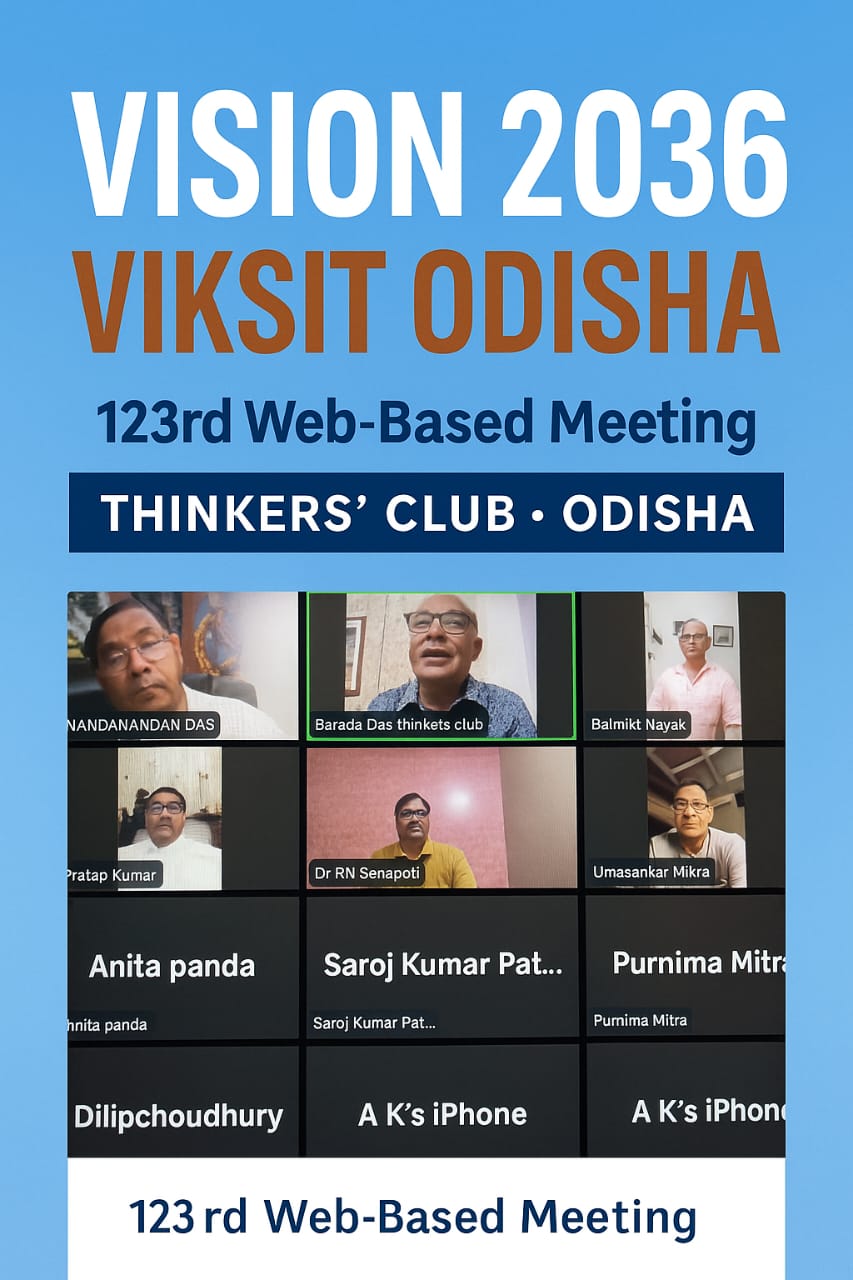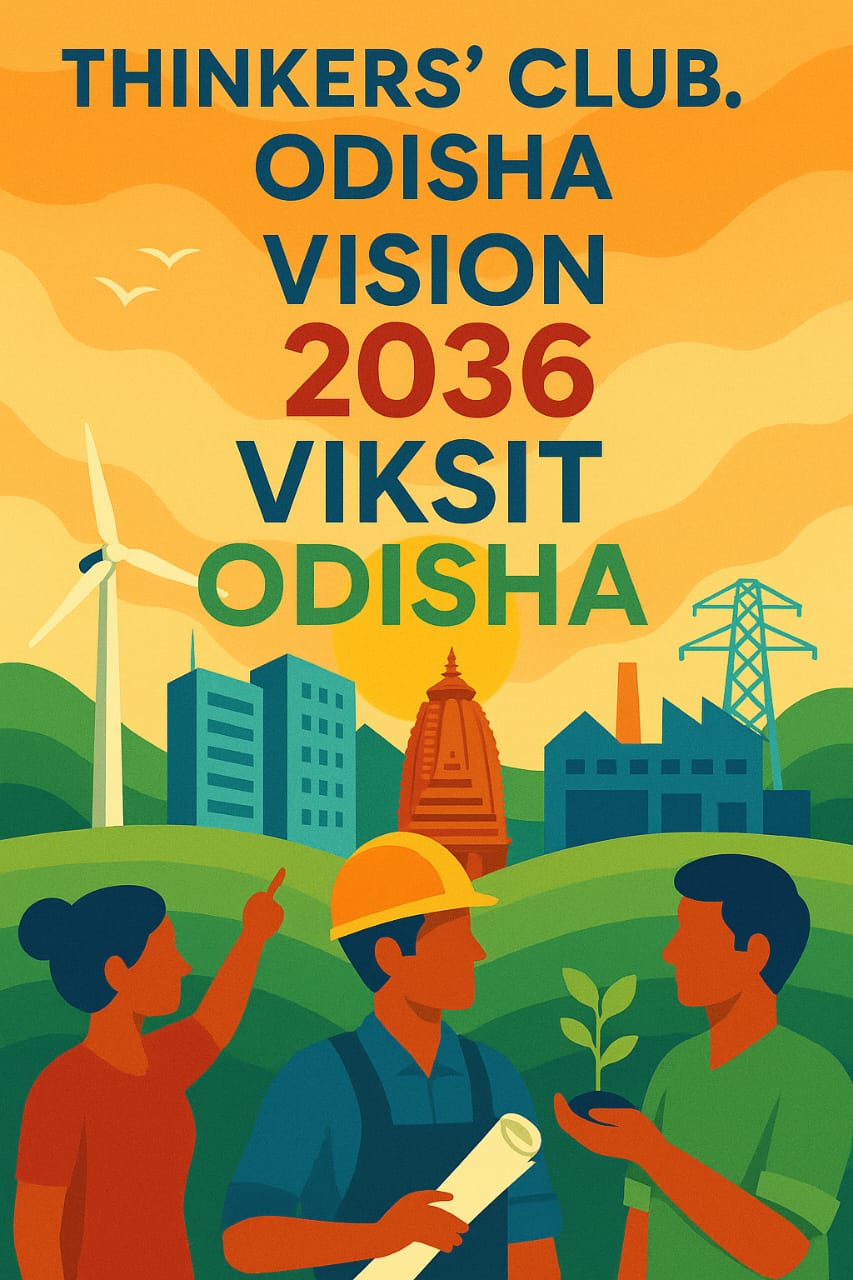
Thinkers’ Club Hosts 123rd Web-Based Meeting on Governance Challenges and Roadmap to Development
Bhubaneswar, June 22:
As Odisha aspires to achieve the ambitious target of becoming a Vikashit (developed) state by 2036, the Thinkers’ Club, in its 5th year, hosted its 123rd web-based dialogue to deliberate on the Vision 2036 Document issued by the state government. The discussion brought together eminent bureaucrats, intellectuals, and development practitioners who emphasized the urgent need for inclusive, transparent, and grassroots-driven governance.
Delivering the keynote, Mr. Sahadeb Sahoo, former Chief Secretary of Odisha, described Vision 2036 as a potential roadmap for good governance, but stressed the need for government outreach to citizens. He pointed out that while technology, including broadband and Artificial Intelligence (AI), can bridge many gaps, over 30% of Odisha’s population lacks internet literacy and access, with some even climbing trees to find network coverage.
He emphasized uninterrupted electricity and digital accessibility as non-negotiable foundations for governance. “Digital services must be voice-enabled in Odia for the illiterate population. AI can be a game-changer if implemented inclusively,” he added. Mr. Sahoo also criticized excessive government spending on publicity and VIP events, urging a redirection of funds toward education, healthcare, and self-employment schemes.
Mr. Rabi Senapati, former IAS, underscored the persistent gaps in basic infrastructure—particularly clean drinking water, all-weather roads, and medical access. “The cholera outbreak in 9 districts is a grim result of service failure. Pregnant women and the elderly are still carried on charpais due to inaccessible healthcare,” he noted, calling for urgent prioritization of these issues in the state’s vision planning.
Joining the session from Boston, development advocate Mr. Sanjay Panda focused on Odisha’s traditional arts, crafts, and handlooms as untapped engines for income generation. “If properly trained and marketed, these skills can reduce unemployment and connect Odisha to global markets,” he asserted. Addressing corruption, he described it as a “mental disease,” insisting that Digital India has made notable progress at the grassroots but strict enforcement and exemplary punishment are essential for true reform. “There can be no compromise on corruption if we are serious about 2036.”
Dr. Nanda Nandan Das, former Works Secretary, referred to the transformation models of Singapore and Dubai, advocating merit-based appointments, moral education, and land reform. He also flagged the need to regulate government borrowing and promote transparency in contractor payments. He called for a revamp of reservation policies to ensure they benefit the truly underprivileged, not just by heredity.
Mr. Pratap Rout from Chhattisgarh emphasized discipline and transparency, advocating compulsory military training for all citizens to instill civic responsibility.
Mr. Vivek Pattanaik, former IAS officer, noted that the term vikash or development is often used vaguely. He urged the government to define clear, measurable targets rather than broad promises.
The meeting was moderated by Sri Barada Prasanna Das, President of the Thinkers’ Club, who stressed the need for electoral reforms under the People’s Representation Act to enable entry of honest and capable individuals into governance.
Other key contributors included Prof. Umashankar Misra, Subash Sahoo, Kamdeb Routray, and Prof. Aashutosh Mishra, who offered varied insights during the discussion.
The event concluded with a vote of thanks to all speakers and participants, reaffirming the Club’s commitment to nurturing democratic dialogue and policy thinking in Odisha’s journey toward becoming Vikashit by 2036.